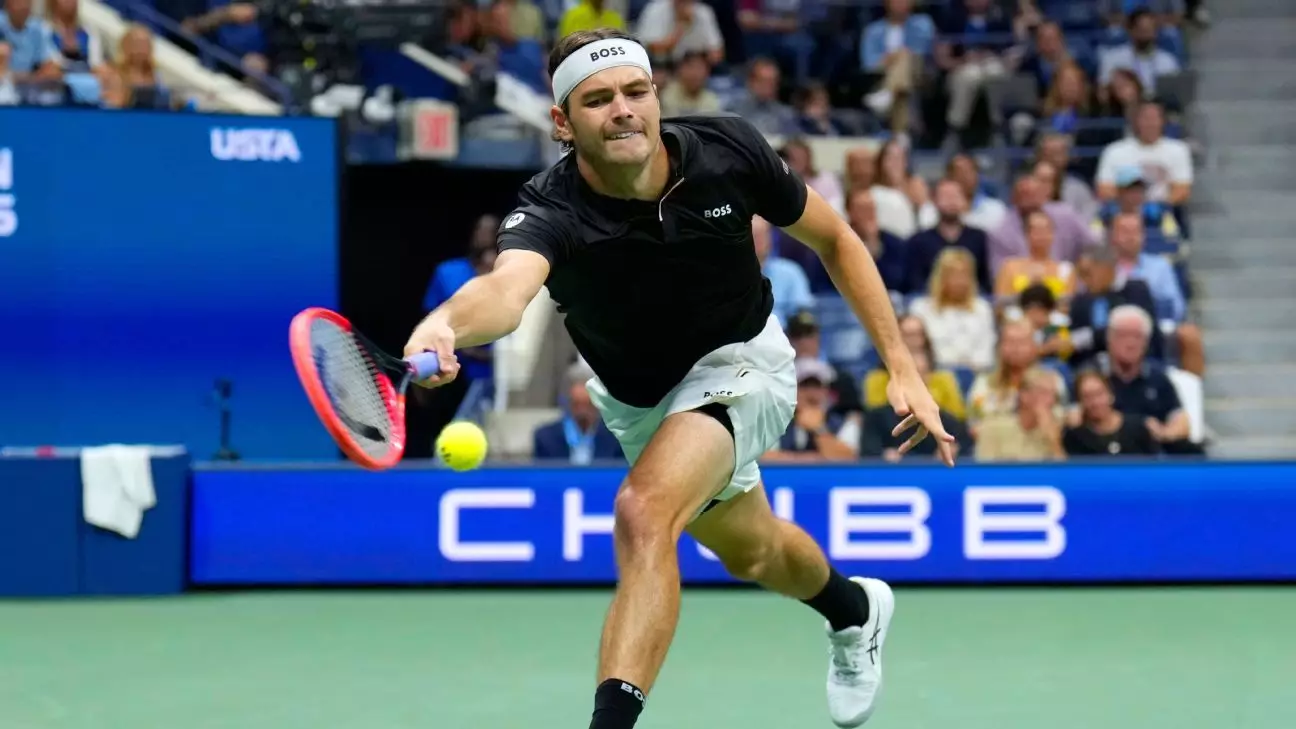The recent declaration by the International Tennis Federation (ITF) to embrace off-court coaching starting in 2025 has sparked a contentious debate among players, coaches, and fans alike. This pivotal change, aimed at enhancing the spectator experience and supporting player development, poses significant challenges to the traditional essence of tennis—its one-on-one competition rooted in strategy and mental fortitude.
Tennis has long been revered for its unique format, where players stand alone on the court, resiliently facing their opponents’ skills and tactics. This solitary nature of the game not only tests physical prowess but also demands exceptional mental acuity. The introduction of off-court coaching could disrupt this critical component, transforming what is fundamentally a mental duel into a team-supported endeavor. Taylor Fritz, a prominent figure in the tennis community and currently ranked World No. 6, poignantly articulated this concern. His social media remarks highlight a broader sentiment: the fear that the core spirit of individuality will diminish as players receive real-time guidance from their coaching teams.
The ITF’s rationale for implementing off-court coaching revolves around making the sport fairer and more engaging. Officials assert that such measures align with player development and enhance the overall quality of matches. However, while the intentions may seem noble, the implications for the game’s integrity are notable. Historical greats of the sport have built their legacies on overcoming adversity through sheer skill and tactical intelligence. Shifting towards a coaching-supported model could consequently dilute the significance of these qualities, potentially leading to a more homogenized playing style across the sport.
Feedback from various stakeholders reveals a spectrum of perspectives. Denis Shapovalov, a former top-ten player, expressed his discontent, emphasizing tennis’s intrinsic beauty relies on the solitude of performance. His objections underscore a significant tension: the fundamental value of individualism in sport versus the allure of enhanced coaching support. Many fans echo this sentiment, fearing that the sport’s allure will be compromised if players rely on external guidance to navigate high-stakes matches.
Despite the dissenting opinions, it is also vital to consider the potential benefits of off-court coaching. Coaches may argue that real-time advice can aid in player growth, allowing them to adjust strategies mid-match based on immediate feedback. This concept raises an essential question: will player development truly be enhanced, or will a reliance on external support stifle the growth of self-reliance and strategic thinking within the athletes?
As the ITF moves toward implementing off-court coaching, the future of tennis hangs in a delicate balance. The redefinition of its core principles poses a real threat to the sport’s identity, stirring anxiety among both players and fans who cherish the brilliance of solitary competition. Whether this decision ultimately leads to a richer tapestry of tennis or an unwelcome dilution of its essence remains to be seen. In navigating this pivotal transition, the tennis world must critically assess the fine line between innovation and the preservation of what makes the sport truly exceptional.


Leave a Reply